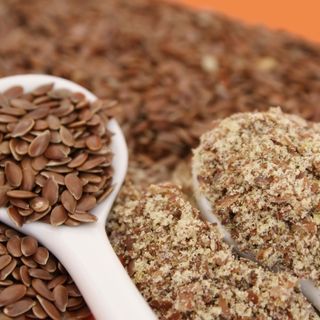Hormone Therapy Linked to Autoimmune Disease
- Jitka Burger

- Nov 2, 2025
- 3 min read

Hormone Therapy and Autoimmune Disease: What Every Woman Should Know
A new large-scale study has shed light on an important health concern for postmenopausal women — and the results may make you think twice about hormone therapy.
In a study of nearly 1.8 million postmenopausal women (average age 60.5 years), researchers found that those who used hormone therapy (HRT) had a 28% higher risk of developing autoimmune diseases over the next decade. Out of 17 autoimmune conditions studied, the risk increased for all but two — Graves’ disease and autoimmune hepatitis. [1]
This retrospective study was designed to better understand previously noted connections between hormones and autoimmune health — and its findings are significant.
Women and Autoimmune Diseases
It has long been known that women are disproportionately affected by autoimmune diseases. In fact, they’re about twice as likely as men to be diagnosed with one. [2]
Now, this new study adds another piece to the puzzle: hormone replacement therapy may contribute to that increased risk.
Why It Matters
Autoimmune diseases don’t have a single cause — they develop through a mix of genetic, environmental, dietary, lifestyle, and stress-related factors. But for women in menopause, hormone therapy appears to be another factor that can raise risk.
Most women begin HRT to relieve unpleasant menopausal symptoms, especially hot flashes. Fortunately, there’s a much safer — and highly effective — alternative.
A Natural Way to Beat Hot Flashes
Research shows that a low-fat, vegan diet that includes soy and flaxseed daily can dramatically reduce hot flashes.
In one clinical trial, adding just ½ cup of cooked soybeans per day reduced moderate-to-severe hot flashes by 88%. [3]
Flaxseed helps too — about 1½ tablespoons (10 g) of ground flaxseed daily can ease perimenopausal symptoms and reduce the frequency and intensity of hot flashes. [4]
Why does this work? Soy and flaxseed are rich in phytoestrogens — natural plant compounds that gently balance hormones without the risks associated with synthetic hormone therapy.
What About Hormone Therapy for Disease Prevention?
In 2022, researchers from the U.S. Preventive Services Task Force (USPSTF) concluded that hormone therapy should not be used for the primary prevention of chronic conditions in postmenopausal women. [5]
This means that even beyond autoimmune risks, the evidence doesn’t support using HRT as a preventive health measure.
A Better Approach to Menopause Health
Instead of relying on hormone therapy, you can support your body naturally — and protect yourself from autoimmune risks — by embracing simple, science-backed lifestyle changes:
Eat a low-fat, anti-inflammatory whole-food, plant-based diet:
Include ½ cup of cooked soybeans daily and 1½ tablespoons of ground flaxseed.
Exercise regularly
Get enough sleep and rest
Manage stress
Avoid smoking and limit alcohol
These steps don’t just ease hot flashes — they also improve energy, stabilize mood, and support long-term health.
Final Thoughts
Hormone therapy can relieve menopausal symptoms, but it also carries significant risks — including an increased likelihood of developing autoimmune diseases. The good news? A low-fat, plant-based diet rich in soy and flaxseed provides a natural, safe, and effective way to ease symptoms and support long-term health.
Your body will thank you.
Resources:
[1] Understanding the Association Between Hormone Therapy and Autoimmune Disease Risk. Accessed November 2, 2025.
Jiang X, et al. Association of hormone therapy with autoimmune disease risk in postmenopausal women: a TriNetX-based analysis. Abstract S-26. Paper presented at: 2025 Annual Meeting of The Menopause Society; October 21–25; Orlando, Florida.
[2] Abend AH, He I, Bahroos N, et al. Estimation of prevalence of autoimmune diseases in the United States using electronic health record data. J Clin Invest. 2024;135(4):e178722. doi:10.1172/JCI178722.
[3] Barnard ND, Kahleova H, Holtz DN, et al. A dietary intervention for vasomotor symptoms of menopause: a randomized, controlled trial. Menopause. 2023;30(1):80–87.
[4] Shrivastava R, Bhattacharya S, Verma N, et al. Effects of Flaxseed on Perimenopausal Symptoms: Findings From a Single-Blind, Randomized, Placebo-Controlled Study. Cureus. 2024;16(9):e68534. doi:10.7759/cureus.68534.








